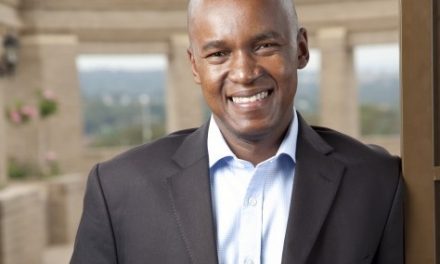
Paratus Namibia new data centre to open in August

The new Paratus Namibia data centre (DC) which will open in Windhoek in August, is set to propel the local economy into the era of carrier-neutral DC offerings, according to a statement released this week.
For the first time, colocation clients will have the freedom of choice as well as access to world-class infrastructure hosting services. Any client hosting within the facility will be able to choose which telecommunications provider they wish to purchase services from.
The campus boasts a high availability environment, with resilience at each infrastructure level, from power to cooling, carrier interconnects and extremely low latency, all backed by a bank of international ISO certifications and PCI DSS certification.
Chief Operations Officer of the Paratus Group and CEO Designate, Schalk Erasmus said that Armada is one of a kind, and a one-stop shop for businesses of all sizes to compete at world-class levels.
“With 99.98% uptime, backed by the most sophisticated technologies, including multiple solar banks – it provides unique assurances. The resilience we offer at Armada is unmatched in Namibia. We have invested heavily and have appointed the best designers and engineers to make Armada the most secure, environmentally friendly, and efficient facility in the country. Armada is the archetype of modern technology at work. Effectively, Armada will provide Namibian businesses with the opportunity to participate in the fourth industrial revolution (4IR).”
The new purpose-built facility will enable businesses to host their ICT infrastructure, providing 24/7 access in a secure and world-class Tier III equivalent DC. Armada has been designed to exact standards, leveraging the latest physical and virtual security and the highest possible uptime. The DC will also offer businesses a colocation solution with a resilient infrastructure environment for clients to host their equipment in, thereby minimising IT capital expenditure and operating costs associated with on-premises hosting and management.
Moving ICT equipment off-site to a fully secured facility offers resilience in connectivity, power, cooling, and features fire suppression and security capabilities that traditional onsite setups might struggle to achieve economically.
The carrier-neutral facility will offer various colocation services, from half-cabinets to multi-tenant rows and private cages. Key features of the facility include: 2-Megawatt Power Capacity (Phase 2); diverse A&B utility power supply (Phase 2); dedicated generators – per A&B feed, for comprehensive resilience and 72-hr fuel autonomy; diverse Power Feed design throughout from utility to cabinet level; fully inter-resilient 500 kVA UPSs per feed (A&B) dedicated to the Data Centre; separate utility UPS to ensure electrical autonomy; dual UPS feeds per cabinet to deliver up to 3.3kVA; cold Aisle Containment and inter-resilient CRAC cooling units at N+1; multiple diverse carrier routes with separate Meet-Me-Rooms (A&B) as well as access to tower across diverse infrastructure from fiber to microwave; direct link to the new Equiano cable and CLS in Swakopmund and access to Paratus backbone network linking multinational customers to the Paratus Data Centers in Angola and Zambia
“Paratus has two DCs in Angola and another in Zambia, and with Armada, we are raising the bar again. This is in line with our main objective of transforming Africa through exceptional digital infrastructure. We’re helping to ‘unlimited’ the future,” Erasmus added.
Offering colocation services, and 24/7 quality connections for local and multinational businesses, together with a very sophisticated range of digital and aligned services, Paratus Namibia is helping local and international businesses in the region to perform at a new and unlimited level and be fully digitally fit for that purpose.
Please visit https://armada.paratus.africa/ for more information.











































